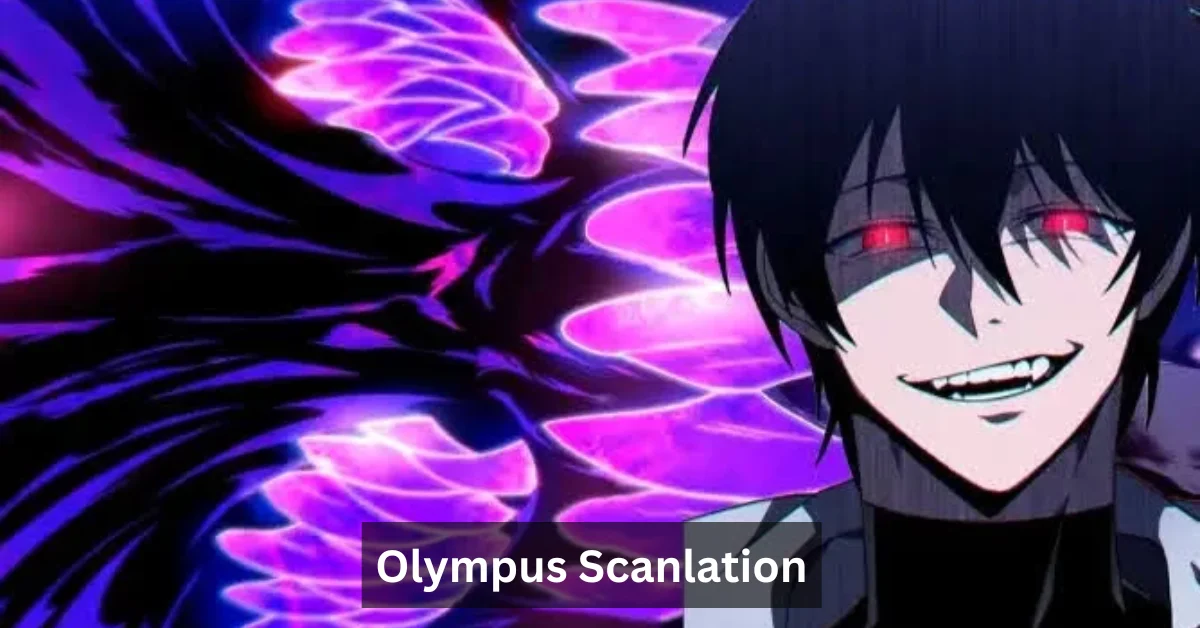In today’s interconnected digital era, manga, manhua, and manhwa enchant a global audience. Central to this cross-cultural phenomenon is scanlation—the fan-led translation movement. Olympus Scanlation stands as a leading force, making these works accessible worldwide and driving community discussion. In this blog post, we’ll examine how Olympus Scanlation has substantially expanded foreign comic access, fostered creativity, and ignited ongoing debates about copyright, ultimately transforming both fan and creator experiences across cultures.
Introduction
In the landscape of comics, Olympus Scanlation is synonymous with access and transformation. This fan translation group has redefined the international reach of manga, manhua, and manhwa. Originating from online fan communities, Olympus Scanlation’s purpose is clear: to remove language barriers and spark global conversations around these comic genres.
As international interest in Asian comics surged over the years, so did the demand for quality translations that captured not just dialogue but also cultural nuances. Enter Olympus Scanlation—a group dedicated to bridging language barriers and connecting fans with captivating stories they might have otherwise missed. Their efforts have transformed how enthusiasts engage with their favorite titles while raising important questions about copyright laws and community ethics along the way.
We will examine how Olympus Scanlation’s work expands access, unites international fan bases, and influences industry choices. Their consistent efforts shape the evolution of global comic culture and fuel ongoing debates about how international readers connect with Asian comics.
Why are fan translations important in the manga, manhwa, and manhwa communities?
Fan translations play a vital role in these communities, bridging the gap between creators and non-native speakers. This opens access to stories that might otherwise remain unknown.
They also foster a sense of community, uniting diverse enthusiasts who share a passion for these art forms. Through forums and social media, fans connect over favorite titles and characters while celebrating culture.
Fan translations spotlight niche works that publishers may overlook, boosting later demand for official releases.
Key takeaways: Fan translations increase story accessibility, foster cross-cultural community, bring attention to lesser-known works, and spark new global dialogues around comics.
The impact of Olympus Scanlation on increasing accessibility to foreign comics
Olympus Scanlation has transformed the landscape of foreign comics. By providing fan translations, they bridge language gaps for countless readers around the globe.
Previously, many titles were nearly impossible to access outside their native countries. Olympus Scanlation opened new doors, allowing fans to explore rich narratives and vibrant art that would remain obscure.
Their dedication to quality translations ensures that stories maintain their original essence while becoming accessible. This commitment fosters a deeper appreciation for diverse cultures among Western audiences.
Olympus Scanlation encourages community engagement. Readers discuss and share with fellow fans, fostering belonging in the broader fandom.
By promoting accessibility on a global scale, Olympus Scanlation significantly changes perceptions of foreign comics, ensuring that readers everywhere can experience new stories and that creators’ works receive broader recognition.
Controversies surrounding fan translations and copyright laws
Fan translations, including those by Olympus Scanlation, often spark heated debates about copyright. At the heart of this issue is the question: are these efforts a form of homage or blatant piracy?
Many creators view fan translations as unauthorized use of their intellectual property. They argue that such practices undermine official releases and revenue streams. When fans take it upon themselves to translate works without permission, they wade into murky legal waters.
On the flip side, proponents believe fan translations serve as vital bridges between cultures. These groups create access for readers who might otherwise be excluded from experiencing diverse stories. Key takeaways: The copyright debate around fan translations is nuanced, balancing creator rights against community access and cultural exchange. Complexities remain unresolved.
How Olympus Scanlation has influenced the popularity of certain titles in Western countries
Olympus Scanlation shapes the popularity of manga, manhua, and manhwa in Western countries. By translating lesser-known works, they introduce fans to new genres and stories.
Fans flock to these translations for their quality and accessibility. Enthusiastic communities form around popular series, sparking discussions that fuel further interest. Titles like “Solo Leveling” or “My Dress-Up Darling” gained traction largely due to Olympus’ efforts.
Moreover, social media platforms buzz with fan art and theories about translated series. This excitement translates into sales when official versions are released. Publishers recognize this demand as more fans seek out the original content once exposed through scanlations.
Ultimately, Olympus Scanlation serves as a crucial connection between Asian creators and global audiences, amplifying opportunities for both new and established titles to reach passionate fans.
Olympus Scanlation team about their work and community involvement
Members of Olympus Scanlation often share their passion for comics during casual chats. They speak about the thrill of bringing stories to life in a new language. It’s not just about translation; it’s about capturing the essence and culture behind each panel.
Team member Akira mentions how community feedback shapes their work. Readers’ enthusiasm fuels their dedication, creating a vibrant cycle of appreciation and creativity.
Also, there’s a strong emphasis on collaboration within Olympus Scanlation. Artists, translators, and editors all contribute their unique skills. This synergy fosters both professional growth and lasting friendships.
Many also participate in events or online forums, spreading manga culture. Their commitment extends beyond translations to creating inclusive spaces where fans connect over shared interests.
Key takeaways: Olympus Scanlation team members are driven by passion, community feedback, and collaborative spirit, creating an inclusive space while respecting original creators’ visions.
Comparison with other fan translation groups and their contributions to the community
Olympus Scanlation stands out among numerous fan translation groups, each with its distinct flavor. Groups like MangaFox and Baka-Tsuki have made significant contributions by covering various genres and titles. Their efforts have fostered a diverse landscape for fans to explore.
Unlike some groups that focus solely on popular series, Olympus emphasizes both mainstream hits and hidden gems. This dedication allows readers access to unique stories they might otherwise overlook.
Moreover, while others may prioritize speed over quality, Olympus balances both aspects effectively. The meticulous attention given to translations ensures that the essence of the original work is preserved.
Key takeaways: Olympus balances quality with speed, focuses on both mainstream and lesser-known works, and nurtures community engagement, distinguishing itself from other groups.
The future of fan translations and the role of Olympus Scanlation in it
The landscape of fan translations is evolving rapidly. With the rise of digital platforms, accessibility has never been easier for readers around the globe. Olympus Scanlation stands at the forefront of this shift.
As more creators embrace online publishing, fan translation groups like Olympus are adapting to integrate with official releases. This collaboration can improve visibility and reach for both independent artists and established titles.
The community-driven model that Olympus champions fosters a passion for storytelling. It cultivates an environment where fans not only consume content but also engage in its creation.
Emerging technologies will play a significant role as well, making it simpler to translate and share work across languages. The future holds great potential for bridging cultural gaps while celebrating diverse narratives.
Olympus Scanlation’s ability to innovate and adapt will strongly influence future fan access and industry practices, reinforcing its central role in shaping how audiences discover and value global comics.
Conclusion
The landscape of manga, manhua, and manhwa is continually evolving. As fan translations grow in prominence, the debate surrounding them intensifies. Supporters argue that groups like Olympus Scanlation provide a vital service by making foreign comics accessible to a broader audience. They fill gaps where official releases may lag or fail to exist altogether.
On the other hand, critics emphasize the importance of supporting official releases. They contend that doing so helps creators earn their rightful income and encourages publishers to license more works for international audiences.
This ongoing debate highlights how Olympus Scanlation makes global access possible while raising crucial questions about creators’ rights. Both fan-driven translations and official releases are central in building international comic appreciation and shaping how readers support creators.
Key takeaways: The ongoing debate requires fans to consider both increased access and direct artist support, emphasizing thoughtful engagement and appreciation for multiple perspectives.

